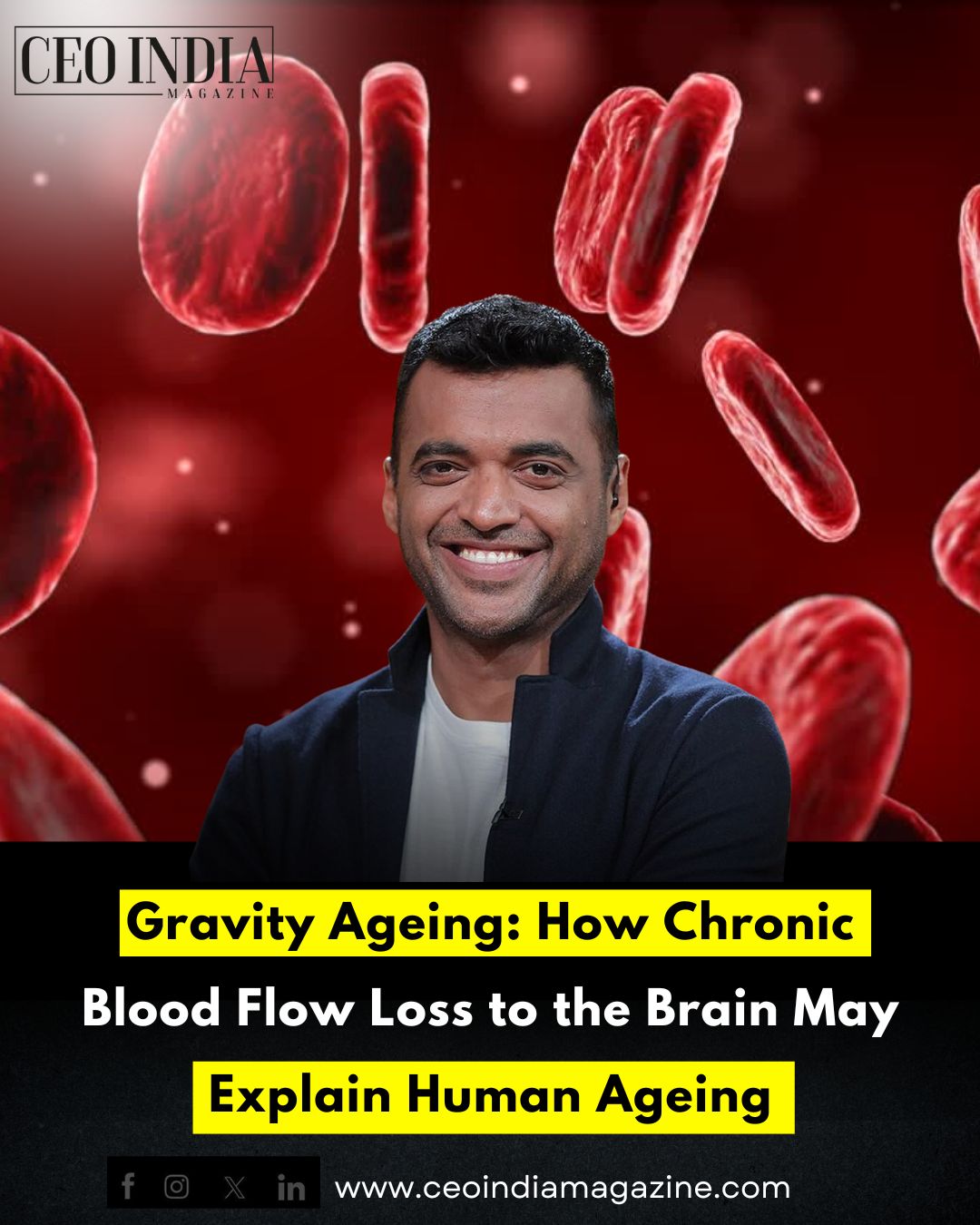A bold new hypothesis from Deepinder Goyal’s biological research initiative, Continue Research, is challenging conventional ideas about why humans age. Called Gravity Ageing, the hypothesis proposes that something as constant and unavoidable as gravity may be quietly driving the ageing process throughout our lives. By focusing on how gravity affects blood circulation to the brain, this idea offers a fresh perspective on longevity, healthspan, and the biological mechanisms that make our bodies grow old.
At the centre of the Gravity Ageing hypothesis is Cerebral Blood Flow (CBF)—the supply of oxygen- and nutrient-rich blood to the brain. The research suggests that when a person stands or sits upright, gravity pulls blood downward, away from the brain. As a result, CBF may decrease by up to 17% in an upright posture. While this reduction may seem small in the moment, Continue Research argues that the chronic impact of this underperfusion over many decades could be profound.
The brain regions most affected by reduced blood flow are believed to be the hypothalamus and the brainstem. These two areas are not only critical for survival but also serve as command centres for the body’s major regulatory systems. The hypothalamus controls hormones, metabolism, circadian rhythms, and appetite. The brainstem governs autonomic functions such as breathing, heart rate, and inflammation. If either of these regions weakens, the entire body can feel the consequences.
According to the Gravity Ageing hypothesis, lifelong gravity-induced stress on these vital regions could slowly impair their function. Over time, this impairment may trigger the systemic decline we recognise as ageing—ranging from metabolic slowdown and hormonal imbalance to inflammation, impaired immunity, and reduced resilience to disease. In this framework, ageing isn’t just a product of random damage or genetic programming, but a direct physiological response to decades of fighting gravity.
This idea also helps explain why certain interventions may promote healthier ageing. For instance, lying down, sleeping horizontally, and practices that improve blood circulation could potentially support optimal CBF. It also raises intriguing possibilities about why astronauts in microgravity experience unique ageing-like changes—and why restoring healthy blood flow patterns remains crucial for long-term brain function.
While Gravity Ageing is still an early-stage hypothesis, its simplicity and biological plausibility make it a compelling avenue for future research. If proven, it could reshape our understanding of human longevity and lead to innovative strategies to preserve brain health and slow down the ageing process.
As Continue Research pursues deeper investigations into the effects of gravity on cerebral blood flow and ageing, the Gravity Ageing hypothesis underscores a powerful idea: the forces acting on our bodies every day may be shaping our lifespan in ways we have never fully understood.










Leave a comment